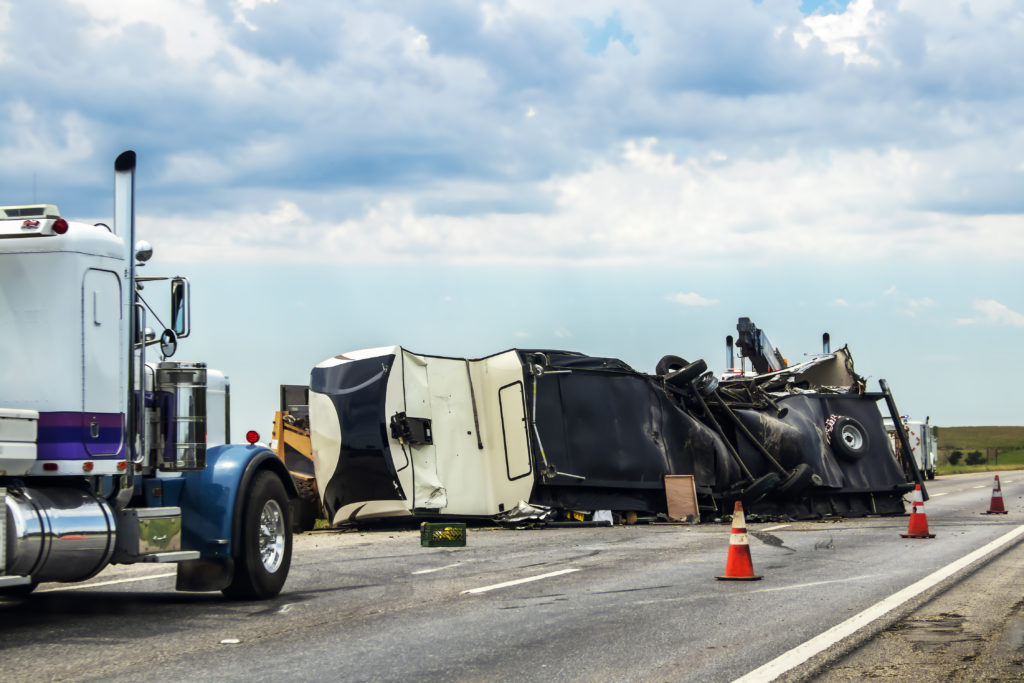
Due to the current COVID-19 pandemic, standards have been relaxed by the Federal Motor Carrier Safety Administration in regards to commercial learner’s permit holders and how they obtain a commercial driver’s license.
The waiver, which will last until June 30th, will allow truckers with learner permits to operate during the coronavirus emergency without needing a commercially-licensed driver in the front seat of the cab–as long as that licensed driver is present in the truck.
With the waiver, the permit-holding driver must also have proof showing that he or she has passed the CDL driving skills test.
The three-month waiver aims to prevent a shortage of commercial truck drivers “from becoming a transportation emergency, and to continue the ability of intrastate and interstate CDL and CLP holders to transport goods in response to the COVID-19 emergency,” said the FMCSA in the waiver, released on March 28th.
“FMCSA has determined that it is in the public interest to issue a waiver, until June 30, 2020, limited in scope in circumstances, that is likely to achieve a level of safety that is equivalent to, or greater than, the level of safety that would be obtained in the absence of the waiver,” the agency explained.
Not only will the waiver not require a learner’s permit holder to have a licensed commercial driver in the front seat whenever the permit holder is driving on public roads or highways, but the state will not need to administer a driving skills test to any out-of-state commercial license applicant who has taken driver training in that state.
Still, permit-holding drivers must always have on hand their non-commercial driver’s license, their learner’s permit, and a medical certificate. Additionally, to make the commercial driver’s licensing process quicker, states can administer driving tests to any applicant, regardless of the state in which they received their training.
“A state driver licensing agency that elects to administer a CDL driving skills test to a non-domiciled CMV applicant under this waiver must transmit the test results electronically directly from the testing state to the licensing state in an efficient and secure manner,” said the waiver.
Still, some states with increased employee absences and office closures have DMVs that are unable to process and issue commercial driver’s licenses at this time.
“Given the national emergency, there is a public need for immediate transportation of essential supplies, equipment, and persons, which requires adequate and sustained supply of drivers eligible to operate a CMV,” said the FMCSA. “This waiver provides needed relief from specified FMCSRs for states and CLP holders.”
According to Don Lefeve, Commercial Vehicle Training Association President, the waiver is not an overall solution to any commercial driver shortage.
“[While the waiver is] a great first step,” he explained, “it doesn’t solve the problem of somebody who needs to get that commercial learner’s permit from the 22 states whose state driver licensing agencies are closed due to the virus.”
Lefeve also explained that CDL holders would still need to be in a sleeper berth, but not necessarily the jump seat, while a permit-holder is operating a truck. As of now, Lefeve believes those drivers-in-training won’t be able to easily move on to driving on their own.
“Typically, new drivers will be paired with a driver trainer for three to eight weeks. depending on the company and individual’s skill progression,” in a “finishing school,” a company providing additional training for drivers who have recently received their CDL, he said.
Lefeve continued: “I think the problem is that if the states’ DMVs remain closed, once that driver could move on to being a solo driver, they could only do so if they have an actual CDL, which, as of now, is near impossible in 22 states because of the DMVs being closed.”
The 22 states that have closed their DMVS also have driver training schools with much more limited operations. “So, it’s critical that governors understand that they need to keep the state driver license agencies open,” Lefeve said.
According to the FMCSA, the waiver does not apply to CMV operators with these endorsements: T (double/triple trailers), P (passenger), N (tank vehicle), H (hazardous materials), X (combination of tank vehicle and hazardous materials), and S (school bus).
“To put all this in perspective, each year–the statistics vary–anywhere from 200,000 to 480,000 CDL are issued,” said Lefeve. “To use conservative numbers, say, 25,000 a month aren’t going to be licensed to do anything in the response or recovery effort.”




